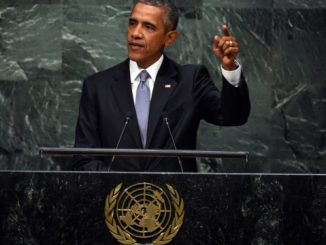
Accra, 3rd June, 2014 – Formalising the interactions between non-state stakeholders and public agencies for collaborative governance could help in addressing some of the challenging issues in Africa’s extractive industries.
This, according to a book released by the United Nations University- Institute for Natural Resources in Africa (UNU-INRA), could play an instrumental role in enhancing the operations and the management of extractive resources for Africa’s development.
The book, entitled “Collaborative Governance in Extractive Industries in Africa”, urges leaders in Africa’s extractive industries to institutionalise a governance system that is transparent, inclusive and accountable in order to improve transparency, equity and efficiency in the management of revenues from the industries. Collaborative governance, the book indicates, will also promote a common understanding of the environmental and socio-economic challenges associated with the extractive industries. It also suggests that with formalised arrangements, non-state stakeholders could easily have access to relevant information including financial statements, public expenditures and other disbursements without resorting to conflicts.
“Collaborative Governance in Extractive Industries in Africa” also calls for the empowerment of community stakeholders by the state, private or international agencies, who are acting as sponsors or leaders of collaborative governance processes. This involves improving the knowledge, skills and capacity of these stakeholders to engage in formal, non-violent dispute resolution and decision-making processes. Training of community members especially on issues such as resettlement of displaced communities, mechanisms for payment of compensations, and on the management of environmental impacts of extractive operations could help improve knowledge and understanding of issues of decision making in the industry.
In his foreword to the book, the Rector of the United Nations University, Dr. David M. Malone, encourages African countries to institutionalise and strengthen their governance system in the extractive industries for development. He states, “I am confident that collaborative governance of extractive industries in Africa will contribute to the efforts to use revenues from extractive resources for inclusive growth”.
The book also discusses the challenges in the distribution and the management of mineral and petroleum resources and suggests many other ways of addressing them for sustainable development in Africa. Also, it draws lessons from other countries to help improve the management of the rich resources in Africa. Among the recommendations are the development of guidelines by government agencies for the use of royalties that go to traditional authorities, the strengthening of relevant state institutions, the need for the establishment of a think thank that is devoted to the extractive industries as well as the development of efficient control mechanisms, to mitigate the resource curse on the continent.
Commenting on the book, the Director of UNU-INRA, Dr. Elias T. Ayuk stresses on UNU-INRA’s commitment to facilitating research on natural resource management in Africa to inform policies.
“Our mandate as an institution is to support the generation of evidence-based knowledge in natural resource management in Africa to inform the formulation and the implementation of strategic governance frameworks, and this book provides key recommendations that could help in resolving conflicts between stakeholders in the extractive industries”, Dr. Ayuk indicated.
As one of the research institutions of the United Nations University, UNU-INRA’s domain is natural resource management, with a strategic program area on governing and managing the extractive industries in Africa.
Editor’s Note
About UNU-INRA
UNU-INRA’s work centres on Africa’s two most important endowments — its human and natural resources. It aims at strengthening capacities at universities and other national institutions to conduct research and produce well-trained individuals with the ability to develop, adapt and disseminate technologies that promote the sustainable use of the continent’s natural resources. UNU-INRA operates out of its main office at the University of Ghana. It has also established operating units (OUs) at the University of Cocody, Abidjan, Ivory Coast, University of Yaoundé I, Yaoundé, Cameroon, University of Zambia, Lusaka, Zambia, University of Namibia, Windhoek, Namibia, and Institute for Food Technology (ITA) of the Ministry of Mines and Industry in Dakar, Senegal, through which some of its major activities are carried.
Media Contact
Praise Nutakor
Communications and PR Associate, UNU-INRA
Tel: +233-244093010
Email: nutakor@inra.unu.edu
Disclaimer
The views and opinions expressed in the book are those of the authors and do not necessarily reflect the official policy or position of the United Nations University-Institute for Natural Resources in Africa (UNU-INRA)
Website: www.inra.unu.edu, Email: inra@unu.edu





Leave a Reply